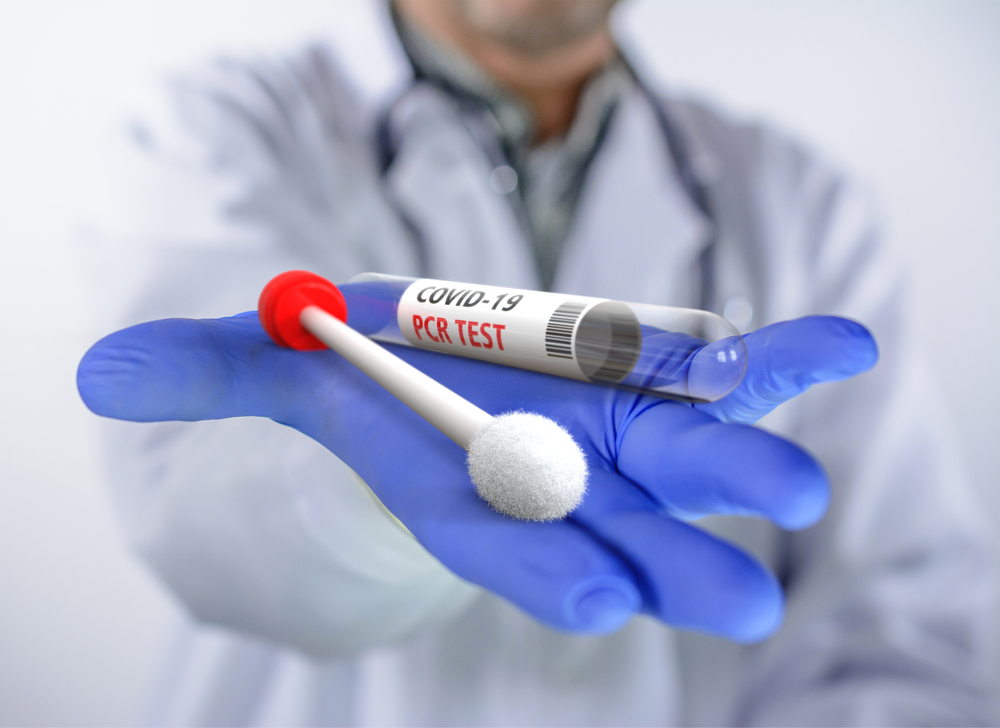Staff and students can volunteer to be part of rapid testing and other testing surveillance systems on college campuses as part of UniCoV.
The project will conduct a large-scale analysis of testing technologies for Covid-19 surveillance and prevention in higher education.
These will include rapid antigen testing, saliva-based PCR testing and wastewater surveillance. The results of the project will help to develop early warning systems, for future outbreak prevention and control.
Staff and students can enrol across four universities – NUI Galway, Trinity College Dublin, University College Dublin and University College Cork.
Testing volunteers will provide saliva samples twice a week and drop them off at on-campus collection points. These samples will go through PCR or LAMP testing.
On the same day, those volunteers will take a self-administered rapid nasal swab antigen test, and upload a photo of their result from their phone to the secure unicov.org website. The website also includes a detailed information leaflet, instructional videos and an informed consent document.
The UniCoV study will also include wastewater monitoring. Wastewater samples will be collected from each campus site and analysed for the presence of the SARS-CoV-2 virus.
A live dashboard will provide anonymised aggregate information about each campus’ results. This is a key part of the surveillance system and will allow for early warning of any potential outbreak.
Student health units will provide referrals for people with symptoms of COVID-19.
UniCoV Explainer video
Pilot Rapid Testing Project on Four College Campuses
Minister for Further and Higher Education, Research, Innovation and Science, Simon Harris said:
“I recently published Government’s plan for a safe return to on-site teaching, research and study this semester.
“Rapid testing may potentially be an important element of this plan. This pilot project will help us learn more about different types of tests, how effective they are and if they can or should be used in higher education settings.
“None of these replace the public health advice but could be additional weapons in our fight against COVID-19. Over 8,000 will participate in the study and it is of course optional but I really would encourage staff and students to participate and help us with our plans for a safe and sustainable re-opening of campuses and society. You can sign up at www.unicov.org, it’s easy, it’s secure and you’ll be playing a vital role in our recovery from this pandemic.”
Professor Breda Smyth, NUI Galway and Director of Public Health, HSE West, lead the UniCoV project.
Professor Smyth commented:
“Students in Ireland have shown significant resilience in adapting to the challenges that COVID-19 has created. However, evidence suggests both in Ireland and internationally this is not without adverse effects including reduction in academic performance, social isolation and deteriorating mental health and wellbeing. UniCoV will inform surveillance systems to support the provision of safe campus environments and provide evidence to facilitate return to campus activity for staff and students in further and higher education institutes.”
The Department of Further and Higher Education, Research, Innovation and Science, Science Foundation Ireland (SFI), NUI Galway, TCD, UCD, UCC and the HSE support and fund the UniCoV project.
The ambitious UniCoV research project builds on SFI-funded research carried out during the pandemic at NUI Galway , UCD ( upcom.ie and ‘Detection and Quantification of Neutralizing Antibodies against COVID-19 infection’), Trinity College Dublin , and UCC, (‘Saliva sampling for the detection and diagnosis of COVID-19’).
Along with Professor Smyth, principal investigators on the project include:
- Professor Charles Spillane, Ryan Institute, NUI Galway
- Professors Aideen Long, Kingston Mills and Orla Sheils, Trinity College Dublin
- Professor Mary Horgan and Dr John MacSharry, University College Cork
- Professors Patrick Mallon and Grace Mulcahy, University College Dublin
Additional UniCoV collaborators are based at these institutions and also at the University of Limerick and Teagasc. The complementary skills and expertise of the experts involved from across Irish universities form a strong and critical network to conduct this important research study.












Comments